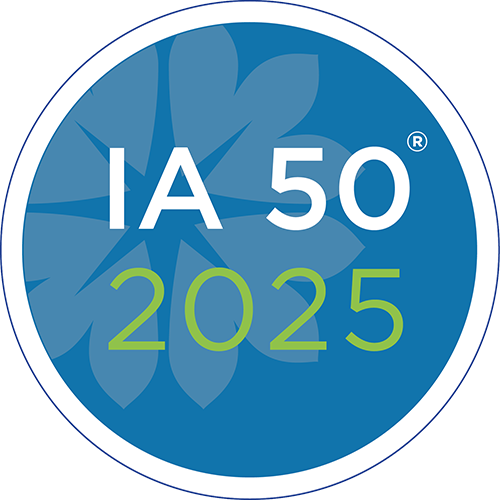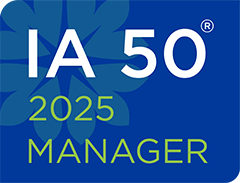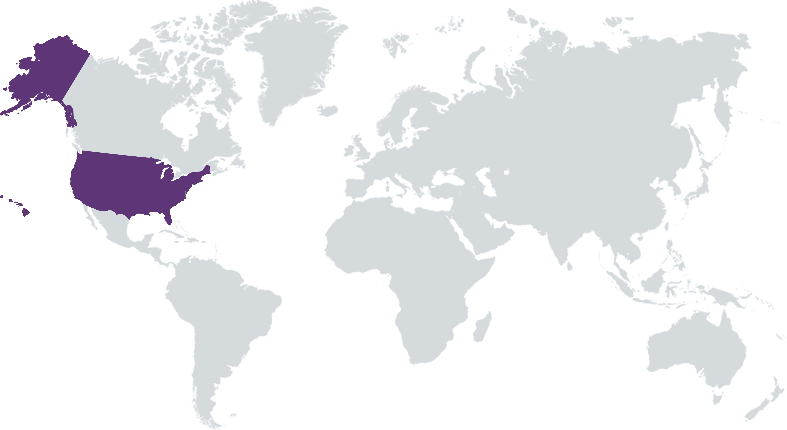IMPACTASSETS 50™
An Annual Showcase of Impact Investment Fund Managers

ImpactAssets 50
An Annual Showcase of Impact Investment Fund Managers

Kachuwa Investment
Cooperative PBC

 Diversity, Equity and Inclusion
Diversity, Equity and InclusionFirm Overview
Kachuwa Impact Fund is an investment cooperative and public benefit corporation focused on owning and operating “impact real estate” and investing in privately held “impact companies.” As a cooperative, Kachuwa is democratically owned and controlled by its members on a one-vote-per-person basis. By design, ~60% of Kachuwa’s assets are real estate and ~40% of its assets are private debt and equity investments. All of Kachuwa’s assets must be aligned with one or more of Kachuwa’s nine “impact themes.” Kachuwa defines “impact real estate” as having a positive impact on society and the environment via: how it is used; how it is designed/built/renovated; where it is located; and/or who it benefits. Similarly, Kachuwa defines an “impact company” as one that exists to generate both financial returns AND a positive impact on society and the environment via: what it does; how it operates; where it operates; and/or who it benefits.
Years of Operation: 10 years or more
% of Capital from Top 3 Investors: 25% – 49%
Our economy, society, and environment would benefit greatly from a larger number of: (a) private impact companies that have access to patient, non-controlling capital that maximizes their autonomy and ability to pursue their missions; and (b) investors with diversified investment portfolios that include private impact investments.
Most investors are non-accredited and perceive their investment options to be primarily limited to Wall Street. However, the greatest positive impact tends to be generated in private, not public, markets. If given the opportunity, more people would choose to invest a portion of their savings in private, impact investment opportunities that are better aligned with their own values. Furthermore, most impact entrepreneurs perceive their financing options to be limited to traditional investment sources that typically require that entrepreneurs: (a) give up full or partial control of their companies; and (b) operate their companies differently than they otherwise would (e.g. pursue more aggressive growth and/or profit at the expense of other stakeholders) in order to prepare their companies for an exit in 5-7 years. If more sources of mission-aligned, non-controlling, and long-term investment capital were available, more entrepreneurs would start, convert to, avoid exiting, or continue to operate purpose-driven impact companies.
Kachuwa is one of the only investment cooperatives in the USA. In contrast to traditional funds: (1) Kachuwa is an open-ended, evergreen fund into which members can invest via annual stock offerings; (2) each member has one vote, regardless of investment size; (3) Kachuwa has fixed-price stock that eliminates the need for highly speculative portfolio valuations to determine NAV for incoming and exiting investors; (4) members don’t have to pay third-party management fees or carried interest – they instead share in the cooperative’s operating expenses; (5) Kachuwa distributes its net income to members via annual “patronage dividends” in accordance with traditional cooperative principles; (6) Kachuwa aims for a more diverse portfolio with private debt, equity, AND real estate assets; and (7) Kachuwa is welcoming to non-accredited investors who can participate in its offerings and receive 1099s instead of relatively complex K-1s (because Kachuwa is a cooperative and not a partnership).
Investment Example
Kachuwa provided 100% of the capital to purchase a mixed-use building to help Village Institute (www.villageinstitute.org), a startup nonprofit, to “gain control of its real estate destiny.” Village Institute’s mission is to help refugee women and their families, and they had found the perfect “home,” but the landlord wanted to sell it after they’d been occupying it for just two years. As a fledgling nonprofit, they couldn’t afford to buy it themselves, and as a result, the building was in danger of being sold out from underneath them, likely for redevelopment in a neighborhood ripe for gentrification. After being approached by Village Institute for assistance, Kachuwa purchased the $1.2M building in an all-cash deal (because no mortgage lender could underwrite the startup nonprofit as the sole tenant) and offered Village Institute below-market rent, long-term stability, and a shared ownership opportunity in the building without any capital requirement from Village Institute.
Leadership and Team
 |
Blake Jones – President More Info
Blake Jones has co-founded five cooperative enterprises: (1) Kachuwa Impact Fund, an investment cooperative; (2) Namasté Solar, an employee-owned cooperative; (3) Clean Energy Credit Union, a federally chartered financial services cooperative; (4) Amicus Solar Cooperative, a purchasing cooperative; and (5) Amicus O&M Cooperative, a resource-sharing cooperative. From 2004-2015, Blake served as CEO of Namasté Solar, a solar electric company and certified B-Corp, growing its annual revenues to $50M. As an impact entrepreneur, he experienced first-hand the challenges associated with financing a rapidly growing impact company while staying true to a unique culture, company model, and mission. |
 |
Alicia Robb – Vice-President More Info
Alicia is the Founder and CEO of Next Wave Impact and a Managing Partner of two early-stage venture funds. She was previously a Senior Fellow with the Kauffman Foundation for more than a decade. Alicia received her M.S. and Ph.D. in Economics from the University of North Carolina at Chapel Hill. She previously worked as an economist with the Federal Reserve Board of Governors and the Office of Economic Research in the Small Business Administration (SBA). |
 |
Lizette Peña – Treasurer More Info
Lizette Peña currently serves as a Fractional VP of Finance and Accounting at Ascent CFO Solutions in Colorado. She has over 25 years of auditing, accounting, and consulting experience in a variety of industries and not for profit organizations. Lizette is an authentic leader guided by strong ethics and accountability, and she is passionate about sustainable business practices and renewable energy. Lizette is GRI (Global Reporting Initiative) G4-certified for sustainability reporting. She is licensed as a Certified Public Accountant in both Colorado and Florida. |
Financial Performance
Impact Performance
|
Percentage of Total Assets Under
Management that are Impact Investments: |
100%
|
We won't invest unless there's positive impact that specifically aligns with one or more of our cooperative's stated impact themes, and we only invest in "impact companies" which we define as creating positive impact via: (1) what it does (e.g. its products and services); (2) how it operates (e.g. its business practices and corporate governance); (3) who it benefits (e.g. its owners, employees, customers, suppliers, and other stakeholders); and/or (4) where it operates (e.g. its locality and/or the communities it serves).
Similar to our response to the previous question, we only invest in "impact companies" which we define as creating positive impact via: (1) what it does (e.g. its products and services); (2) how it operates (e.g. its business practices and corporate governance); (3) who it benefits (e.g. its owners, employees, customers, suppliers, and other stakeholders); and/or (4) where it operates (e.g. its locality and/or the communities it serves). So, considering this is an intrinsic part of our sourcing, screening, and due diligence.
Impact Tracking and Monitoring
Learn More
6707 Winchester Circle, Ste 700, Boulder, CO 80301 USA
Apply for the IA 50 2022
The application period to become an ImpactAssets 50 2022 Fund Manager will open in September 2021!
To stay informed on the application process, sign up here.
